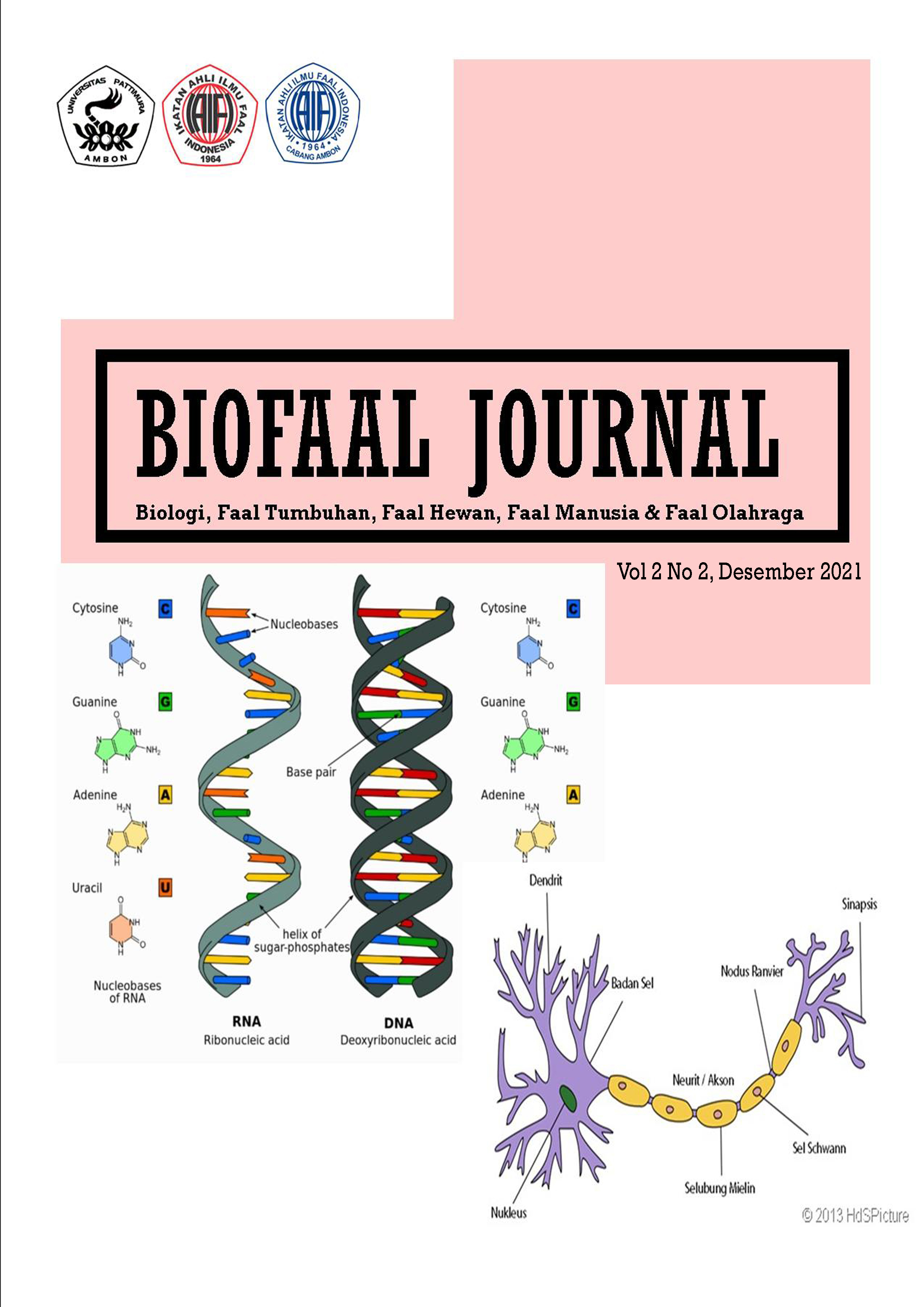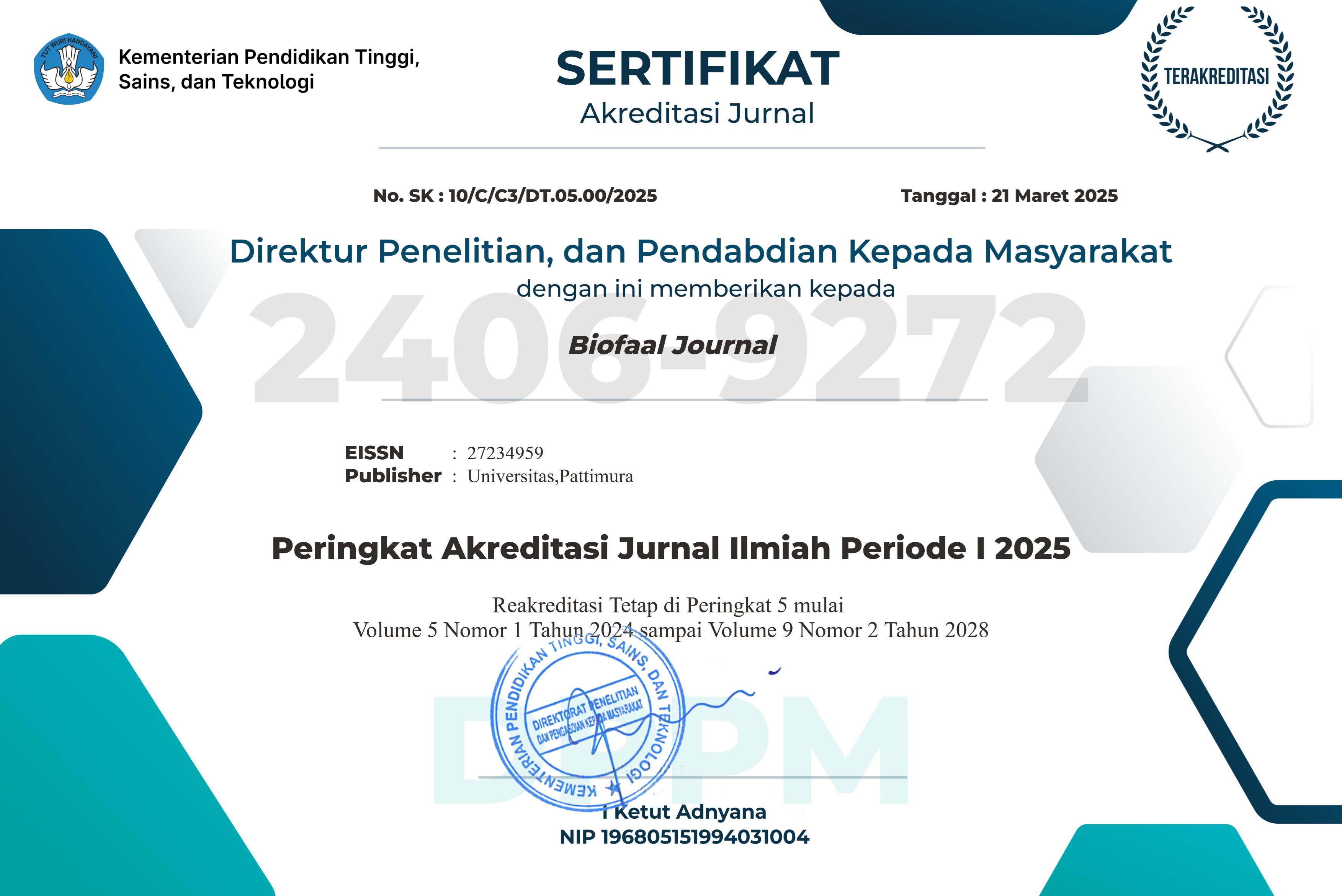NESTS SUCCESS AND EGGS DEVELOPMENT CONDITIONS ON IN-SITU INCUBATION OF MOLUCCAN SCRUBFOWL (Eulipoa wallacei)
Abstract
The use of an external heat source for egg incubation will affect the nesting success of Moluccan scrubfowl (Eulipoa wallacei), thus ultimately determining their reproductive success. The purpose of this study was to calculate bird nest success and identify egg developmental condition from in-situ incubation. Field experiment method was used to estimate the effect of in-situ incubation treatment on bird nest success. A total of 220 egges were planted and 119 eggs were successfully incubated to produce chicks with an average nest success of 0.471 (47.07%). The average incubation time interval was 90 days (interval 86 – 94 days). Of the total eggs that did not hatch, 73.64% of the eggs did not show the embryonic formation during the incubation period. Ideal incubation conditions were important to trigger embrionic formation, so that in the end increase the probability of nest success and sustainable population recruitmen. This study also showed the potential of the Wai Learisa Kayeli estuary as an alternative nesting location for Moluccan scrubfowl on Haruku Island.
Downloads
Copyright (c) 2021 Handy Erwin Pier Leimena

This work is licensed under a Creative Commons Attribution-NonCommercial-ShareAlike 4.0 International License.
1. Author retain copyright and grant the journal right of first publication with the work simultaneously licensed under a creative commons attribution license that allow others to share the work within an acknowledgement of the work’s authorship and initial publication of this journal.
2. Authors are able to enter into separate, additional contractual arrangementfor the non-exclusive distribution of the journal’s published version of the work (e.g. acknowledgement of its initial publication in this journal).
3. Authors are permitted and encouraged to post their work online(e.g. in institutional repositories or on their websites) prior to and during the submission process, as it can lead to productive exchanges, as well as earlier and greater citation of published works.








